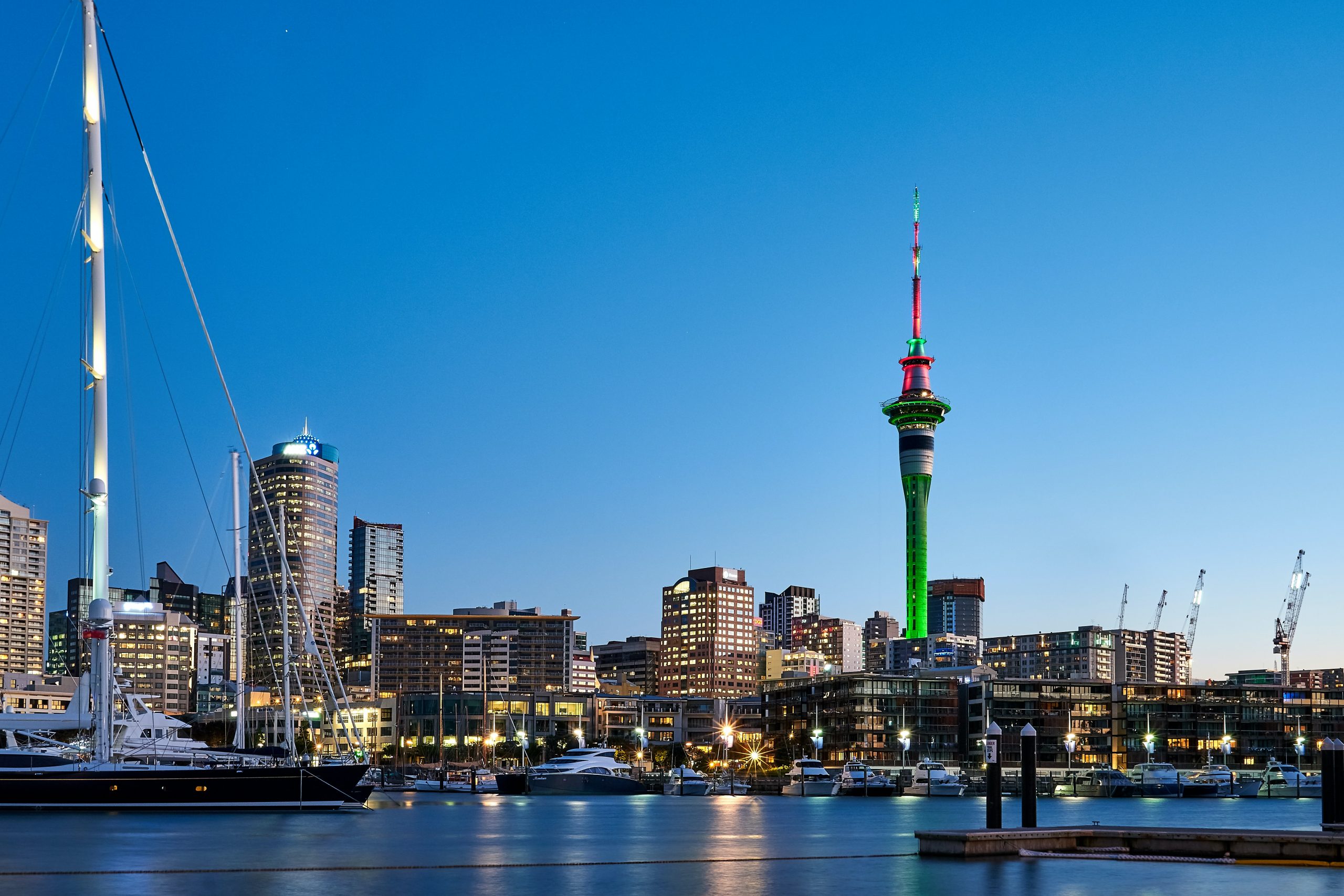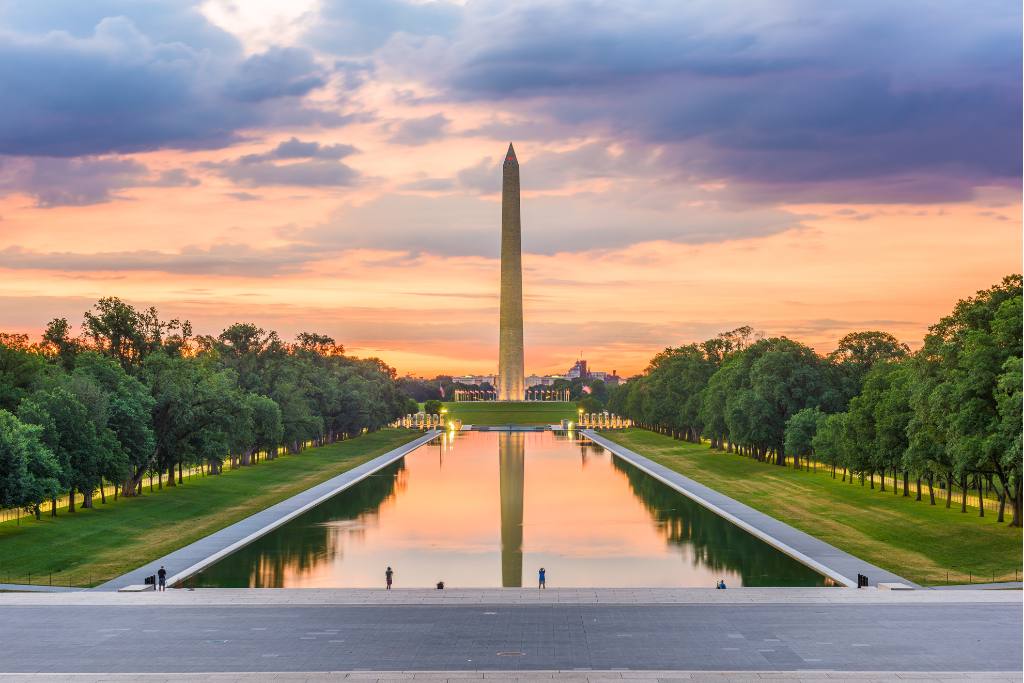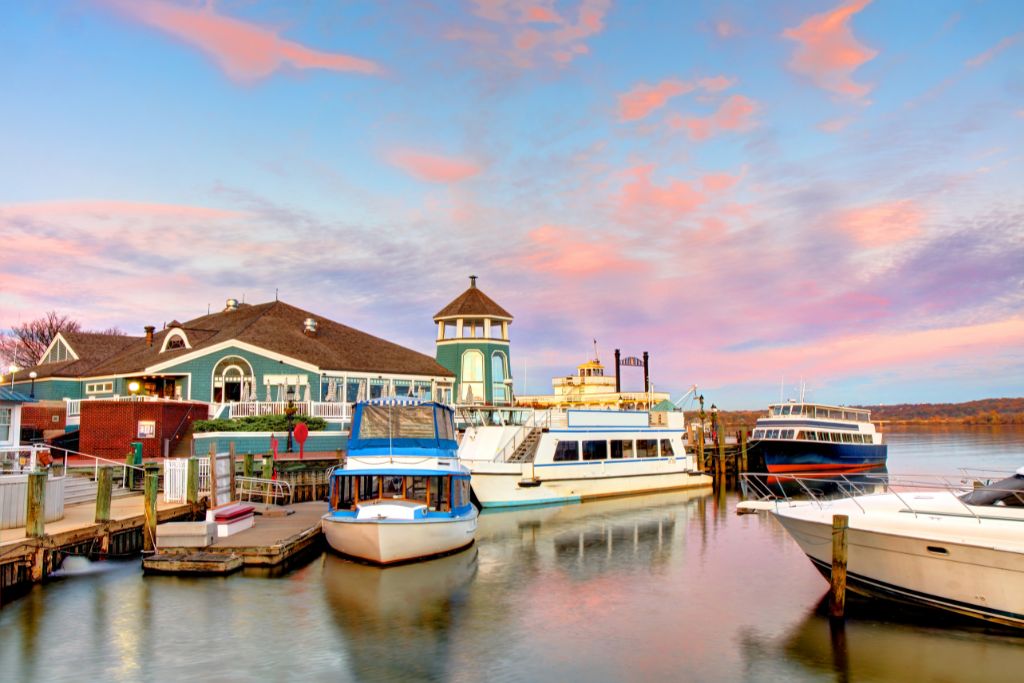1. First steps before moving to New Zealand
Visa requirements
New Zealand is quite stringent on the number of immigrants it allows in the country each year. In most cases, immigration to New Zealand even requires being under the age of 55 and being a skilled worker.
There are various visas allowing you to immigrate to New Zealand, the following are some of the most popular one’s. For more information on all the visas permitting immigration to New Zealand and to start your application, visit New Zealand’s Immigration section.
New Zealand Work Visa
In most cases, to work in New Zealand, you will need to have secured a job offer prior to your arrival. The country is currently prioritizing skilled workers, so check out the “Work in NZ” section to find out if your profession is in demand.
New Zealand Working Holiday Visa for Youth
The USA Working Holiday Visa is a great option for young adults. This visa between the US and New Zealand allows youth between the ages of 18 and 30 to work in New Zealand for up to 12 months.
This initiative is a great way to spend your youth traveling while also earning money. For more information on the Working Holiday Visa and to start your application, visit New Zealand’s Immigration section.
New Zealand Student Visa
To obtain a New Zealand Student Visa, you must obtain a letter of acceptance before applying. If you are under 18 years old (yes, it is possible to get a student visa under 18), you will need a written letter from the person or institution that will be providing your accommodation. You will also be required to provide proof of sufficient funds, and you may need to undergo certain health tests. For more information on the Student Visa and to start your application, please visit New Zealand’s Immigration section.
New Zealand Family Visa (Visa for Partners and Children)
If you have a partner you want to join in New Zealand, you will need to follow requirements like having a stable and real relationship, living with them, being in good health and having financial support from them. You can bring your children to New Zealand only if they are considered dependent. For more information on the Visa for Partners and Children, visit New Zealand’s Immigration section.
Finding a job
As of November 2024, New Zealand’s unemployment rate was at 4.8%. During the same period, the employment rate reached 67.8%, marking the highest rate ever recorded by the Household Labor Force Survey.
New Zealand has a high demand for professionals in various sectors, including Accountants, Cyber Security Specialists, Office Support, Engineers, Software Developers, Technology Infrastructure, Procurement Specialists, Legal Professionals, and many more.
When searching for employment in New Zealand, you can use job vacancy listings and internet job platforms like SEEK and Indeed.
Stas New Zealand – Government NZ (Nov 2024)
Getting there
When moving from the U.S. to New Zealand, air travel is the most efficient and common option. Firstly, check that your passport is valid for your intended stay and obtain the necessary visa based on your relocation purpose.
Usually, you can book your flight to the main New Zealand airports, such as Auckland, Wellington, or Christchurch, from big cities like Los Angeles, San Francisco, or New York. The flight durations can vary depending on routes and layovers, but a nonstop flight typically takes around 12 to 15 hours.
Upon your arrival in New Zealand, you’ll need to complete the required immigration and customs procedures before embarking on your new adventure!
What should I look for in an International Moving Company?
Shipping your things to New Zealand by plane will be faster but more expensive than by boat. Make sure the moving company you decide on is reliable. So when opting for an international moving company, here’s what you should look for:
- Insurance is included (ask what’s included).
- Rates are not extravagant (compare with other companies).
- They have many Google reviews that are over 4 stars.
- Customer service and transparency is their priority.
Car shipping to New Zealand
Unless you have a significant emotional attachment to your car, most Americans choose to leave their cars behind when moving to New Zealand due to the elevated shipping and import fees and the long vehicle inspection process. If you absolutely must ship your car to New Zealand, here are the steps to follow:
- Get various quotes from the best car shipping companies. A trusted car shipping company will have insurance, good reviews, and will make customer service their priority.
- Choose the port of departure.
- Choose the port destination.
- Prepare the car by cleaning it and emptying the tank to ⅛ full, or you may have to pay a fee upon arrival.
*Ask your chosen car shipping company for additional requirements.
Must dos before your arrival
- Define your required visa to enter and stay in New Zealand.
- Secure where to stay before start your life in New Zealand, you can check Airbnb or booking.
- Finding a job with an ideal work-life balance is essential to ensure a smooth work permit application process.
- Plan your move in advance, check international moving companies.
- Make sure to have withdrawn New Zealand currency, which is known as the New Zealand dollar (NZD), also known as Kiwi!
2. Upon your arrival in New Zealand
Must dos right upon your arrival
- Get to know your neighborhood, local stores, pharmacies, and emergency phone numbers.
- Notify your employer and get guidance on next steps after your arrival.
- Consider opening a local bank account for financial convenience.
- Check requirements for your license to drive in New Zealand.
- Make sure to apply for a Kiwi Access Card and obtain an IRD number.
- Familiarize yourself with the public health care system and consider private health insurance options for comprehensive medical care.
Healthcare
While healthcare is free in New Zealand, it is a hybrid system, meaning that it is a mix between public and private. Only 20% of people use the private system, and this is mainly for non-emergency procedures. You can access the free healthcare system in New Zealand only after you have become a Permanent Resident. If you are moving to New Zealand for work, you will most likely be eligible for free healthcare. If you are not eligible for free healthcare, see the section below on private health insurance.
Private health insurance in New Zealand
You may not have access to New Zealand’s free health system as soon as you arrive, which is why you should consider getting private health insurance beforehand. Even if you do have access to the public system, it is a good idea to get private health insurance to speed up wait times for non-emergency procedures. Some recommended private health insurers are Kiwicover, AA Insurance and Pacific Prime.
Setting up your cell phone
If you have an unlocked cell phone, it will be easy to simply insert a SIM card upon your arrival. If your phone is not unlocked, you may have to purchase a new phone on a contract. For around $33.93 USD per month you can mobile phone plan with calls and 10 GB and data according to numbeo.
Getting a driver’s license
Within 12 months of your arrival in New Zealand, you will need to apply for a new driver’s license, as your American one won’t be valid anymore. If you have an American driver’s license, you won’t have to do a theory or practical driving test. Simply fill this form and send it to the Waka Kotahi NZ Transport Agency. More information on converting your driver’s license can be found on the NZ Transport Agency’s website.
Car insurance in New Zealand
Unlike many countries, it is not mandatory to purchase car insurance in New Zealand. However, it is recommended to get the minimum, which is third party liability insurance. Some recommended car insurer’s in New Zealand are AMI, State and Protecta.
Setting up a bank account
Opening a bank account in New Zealand is essential as it will allow you to get paid and keep your money in a safer place. With some banks like Bank of New Zealand (BNZ), you can even open a bank account before you arrive. Some main banks in New Zealand include ANZ Bank New Zealand, ASB Bank and Kiwibank.
New Zealand Currency
New Zealand’s currency is called the New Zealand dollar (NZD), also known as the ”kiwi”. Bills are issued in $5, $10, $20, $50, and $100 and coins are issued in 10c, 20c, 50c, $1, and $2.
Apply for a Kiwi Access Card
Application for a Kiwi Access Card is a must if you are moving to New Zealand as an adult. This card is evidence that you are 18 or older and can be used as a form of ID, which is useful when purchasing alcohol. To begin your application, download the Kiwi Access Card application form.
Get an IRD Number
The IRD Number keeps track of the tax you pay and ensures you pay the correct amount. It’s important to obtain it because it allows you to work, earn money, apply for a student loan, open a bank account, and file tax returns. Check here how to get an IRD number.
Language in New Zealand
The most widely spoken language in New Zealand is English, with Māori being the country’s second official language. However, it’s worth noting that Māori is only spoken by 3% of the population in New Zealand, so it’s not a requirement to learn it if you plan to move there.
3. Best places to live in New Zealand

Relocating to New Zealand involves choosing the right place to live while keeping your preferences in mind, especially if you’re a fan of “Lord of the Rings” and coming from the United States. Here is a short list of the top cities in New Zealand, from the biggest city like Auckland, in the North Island, to the natural beauty of the South Island.
Whether you’re a young professional seeking adventure activities or simply looking for a change, these cities offer a diverse range of experiences:
| Cities | Characteristics |
| Auckland | New Zealand’s largest city, known for its economic opportunities, diverse culture, and vibrant urban life. |
| Wellington | The capital city of New Zealand, famous for its government institutions, cultural events, and picturesque harbor. |
| Christchurch | Offers a blend of city life and a relaxed urban lifestyle on the South Island, known for its beautiful gardens and parks. |
| Hamilton | Known for its strong economy, career opportunities, and a balanced lifestyle with stunning natural landscapes nearby. |
| New Plymouth | A haven for nature lovers with its stunning coastal scenery and Mount Taranaki. |
Setting up home services
Electricity in New Zealand is primarily generated from renewable energy sources such as hydro, geothermal, and wind. Gas is less common in New Zealand, as the country predominantly relies on renewable energy sources.
Water in New Zealand has strict safety standards and can be safely drunk from the tap, you can find your local water provider here.
Internet access in New Zealand is widely available, with prices similar to those in the U.S. While New Zealand’s internet may not be known for the fastest speeds, it remains reliable. Some major internet providers include Spark, 2Degrees, and Vodafone.
Should you rent or buy?
Houses for sale in New Zealand are sold at high prices as this country has become very desirable in recent years. You can begin your search for a house on websites like Realestate.co.nz and Harcourts. Apartments in NZ are called flats and are billed per week. Flats can be found on websites like Nzflatmates, Flatfinder, Realestate.co.nz and Roomgo.
Home insurance in New Zealand – Beware of Earthquakes
New Zealand has thousands of earthquakes every year. To prevent spending large amounts of money on accidental damages from earthquakes, consider getting home insurance. AMI, Tower, and AA Insurance are all reliable choices for home insurance.
4. Cost of living in New Zealand
| Category | Monthly cost |
| 1 bed apt rent outside city center | $884.84 |
| Groceries
The Numbeo grocery list (excluding beer and cigarettes) was totaled and multiplied by seven for a 2000-calorie diet. |
$489.37 |
| Utilities
Electricity, heating, cooling, water, garbage |
$133.76 |
| Internet with 60 Mbps | $50.13 |
| Transit pass | $103.76 |
| Entertainment
Meal, taxi, movie |
$83.59 |
| Gym membership | $36.59 |
| Total | $1,782.04 |
Tips when doing Groceries in New Zealand
Groceries in New Zealand can be quite expensive because the country imports a lot of their food. To save money on groceries, it’s advisable to shop at the main supermarket chains such as New World, Countdown, and Pak’nSave. Among these, Pak’nSave is renowned as the most affordable grocery store in New Zealand.
Most grocery stores are open 7 days a week like in the US. Single-use plastic bags are banned, so make sure you bring a reusable one. Like in the US, corner stores sell milk at a better price than in grocery stores.
What to Expect from your New Life in New Zealand
In New Zealand you will see picturesque sceneries, and you’ll hear a lot about rugby. Don’t be surprised if you move there in July and experience chilly weather; the seasons are reversed due to their location in the Southern Hemisphere. Expect to enjoy a lot of seafood, and be mindful of the potential for earthquakes and volcanoes!
5. The weather in New Zealand
The climate in New Zealand varies across the country, with average annual temperatures ranging from 10 °C in the south to 16 °C in the north. July tends to be the coldest month, while January and February are the warmest. However, it’s essential to note that the seasons in New Zealand differ from those in the U.S.
December to February marks summer, March to May is fall, June to August is winter, and September to November is spring. So, if you’re coming from the United States, you would need to adjust to the reversed seasonal calendar in New Zealand.
6. What to do as a local in New Zealand
To live like a local in New Zealand, start by savoring traditional foods such as pavlova and Māori dishes, and explore local brews. Enjoy outdoor activities with hikes in Auckland and amidst the diverse natural landscapes the country has to offer.
Learn more about the Māori culture through visits to marae and partaking in hāngi feasts. Engage in their passion for sports like rugby and cricket, or simply attend a game at iconic stadiums like Mt Smart Stadium or Eden Park. Connecting with the local community through volunteering is a great way to enrich your experience as a Kiwi.
7. Fun facts about New Zealand
- Home to Maori culture, which plays a significant role in the country’s identity.
- New Zealand is one of the few countries in the world with no snakes.
- Known for its stunning landscapes, especially showcased in films like “Lord of the Rings”.
Conclusion
Moving from the US to New Zealand means you’ll enjoy stunning scenery and hear a lot about rugby. Get ready for some delicious seafood, but keep an eye out for earthquakes and volcanoes. Embracing the Kiwi lifestyle offers an exciting mix of nature, culture, and community, making New Zealand a wonderful place to live.
As you prepare for this exciting journey of moving to a new home, be sure to research international moving companies carefully in advance. Choosing the right mover can significantly ease your transition.





